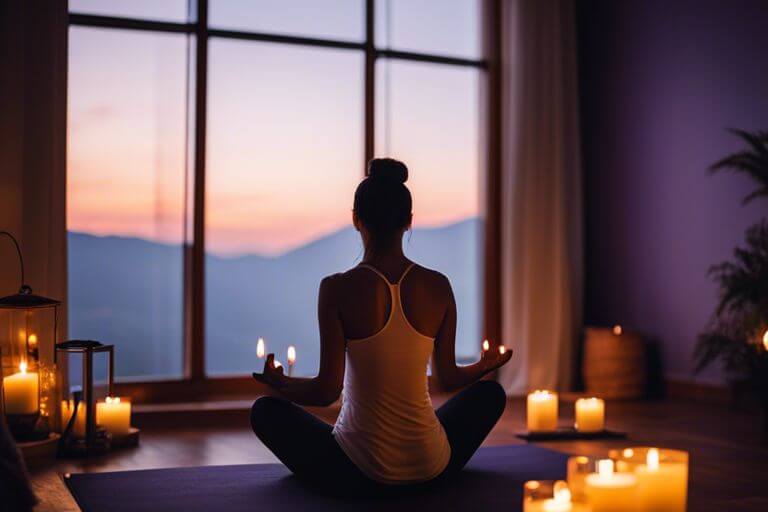From Cardio to Calm – The Best Exercises for Sleep and Relaxation
Cardiovascular exercise is well-known for its ability to boost heart health and overall fitness, but did you know that certain exercises can also help you relax and improve your sleep quality? In our fast-paced world, finding time to unwind and destress is crucial for our well-being. Whether you’re struggling with insomnia, anxiety, or simply looking to wind down after a long day, incorporating these relaxation exercises into your routine can have a profound impact on your mental and physical health. From gentle yoga poses to deep breathing techniques and relaxing stretches, we’ll explore the best exercises to help you achieve a state of calm and prepare your body and mind for a restful night’s sleep.
Cardiovascular Exercises for Better Sleep
Low-Intensity Cardio for Relaxation
To promote relaxation and better sleep, incorporating low-intensity cardiovascular exercises into your routine can be highly beneficial. Activities such as walking, light cycling, or gentle swimming can help reduce stress and calm your mind, preparing your body for bedtime. These exercises are gentle on the body and can be easily incorporated into your daily schedule.
Timing Your Cardio Workouts for Optimal Sleep
Optimal timing of cardio workouts can significantly impact the quality of your sleep. Engaging in cardio exercises at least 3 hours before bedtime is recommended to ensure that your body has enough time to cool down and relax. High-intensity cardio workouts right before bed can elevate your heart rate and body temperature, making it harder to fall asleep. Planning your cardio sessions earlier in the day can help regulate your sleep-wake cycle and improve overall sleep quality.
To maximize the benefits of cardio for sleep, consider incorporating some relaxation techniques post-workout. Stretching, deep breathing, or meditation can further calm your mind and body, promoting a restful night’s sleep. Consistency in your exercise routine and bedtime schedule is key to reaping the full rewards of cardiovascular exercise on your sleep quality.
Strength Training and Sleep Quality
The Role of Resistance Exercises in Sleep Enhancement
While many people associate strength training with high energy levels, it actually plays a significant role in improving sleep quality. Studies have shown that engaging in resistance exercises can help individuals fall asleep faster and experience deeper, more restful sleep. This is because strength training helps regulate the body’s cortisol levels, reducing stress and promoting relaxation, which are vital for a good night’s sleep.
How to Incorporate a Wind-Down Routine After Strength Training
Training for strength is vital for overall health and well-being, but it’s equally important to wind down properly after a workout to maximize the benefits for sleep. For optimal relaxation and improved sleep quality, it’s recommended to incorporate a post-workout routine that includes activities such as gentle stretching, deep breathing exercises, or even a warm bath. These calming activities can help lower heart rate and reduce muscle tension, signaling to the body that it’s time to rest and recover.
Sleep is vital for overall health, and incorporating strength training into your fitness routine can have a positive impact on your sleep quality. By engaging in resistance exercises, you not only improve your physical strength but also promote better sleep by reducing stress levels and promoting relaxation. Remember to take the time to wind down properly after a workout to ensure your body is ready for a restful night’s sleep.
Mind-Body Connection
Yoga and Sleep: A Symbiotic Relationship
Your journey to better sleep can be greatly enhanced by incorporating yoga into your routine. The gentle stretching, deep breathing, and mindfulness practices in yoga help release tension in the body and calm the mind, promoting relaxation and preparing you for a restful night’s sleep.
Mindfulness and Meditation Exercises for Pre-Sleep Calm
To achieve a state of deep relaxation before bedtime, engaging in mindfulness and meditation exercises can work wonders. These practices help quiet the mind, reduce stress, and create a sense of inner peace that is conducive to falling asleep easily and staying asleep throughout the night.
Meditation is a powerful tool for promoting better sleep. By focusing on your breath, a mantra, or a visualization, you can redirect your thoughts away from the day’s stressors and into a state of calmness. Meditating before bed can help quiet a racing mind, lower cortisol levels, and improve overall sleep quality.
Creating an Effective Exercise Plan
Balancing Workouts Throughout the Week
Despite the hectic schedules, carving out time for exercise is crucial for improving sleep and relaxation. An effective exercise plan should involve a mix of cardiovascular exercises, strength training, and flexibility exercises to benefit overall well-being. It is important to balance high-intensity workouts with restorative activities like yoga or tai chi to promote relaxation.
Listening to Your Body: Knowing When to Rest
Throughout your fitness journey, it’s imperative to listen to your body and recognize the signs when it needs rest. Effective rest and recovery are just as important as the workouts themselves. Ignoring signs of fatigue or overtraining can lead to burnout, injuries, and disrupted sleep patterns. Pay attention to cues such as persistent soreness, fatigue, or changes in sleep quality.
Exercise intensity, duration, and frequency should be gradually increased to avoid pushing your body beyond its limits. Rest days are vital for muscle repair and growth, as well as preventing mental fatigue. Be mindful of, proper sleep is also a crucial component of a successful exercise plan, as it allows the body to recover and rejuvenate.
Conclusion
Following this guide on the best exercises for sleep and relaxation can significantly improve your overall well-being and quality of sleep. Incorporating cardio exercises like swimming or cycling during the day and winding down with calming activities such as yoga or meditation before bed can help promote relaxation and better sleep patterns. Remember to listen to your body and choose activities that work best for you. With consistency and commitment, you can create a bedtime routine that promotes restful sleep and a sense of calm.

